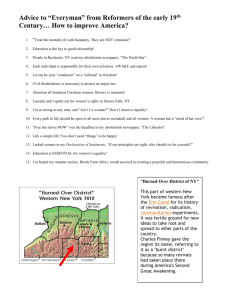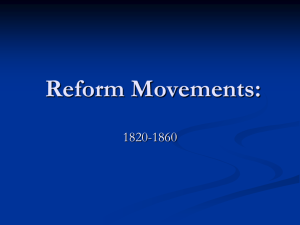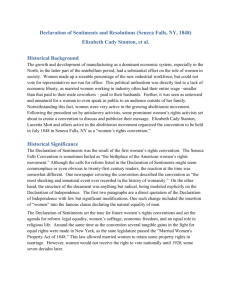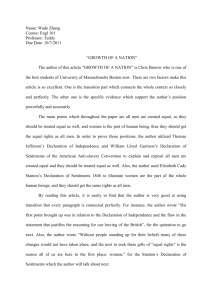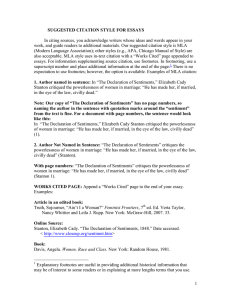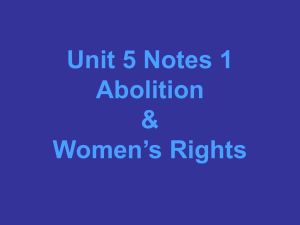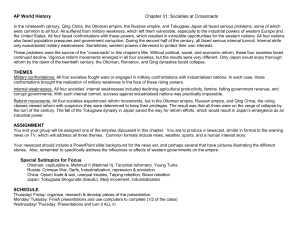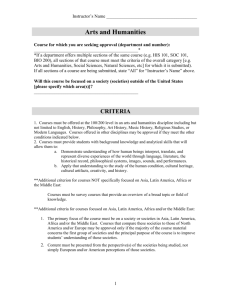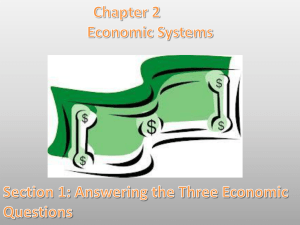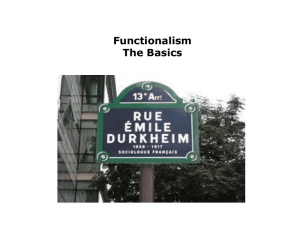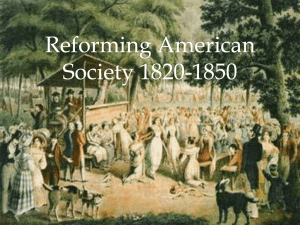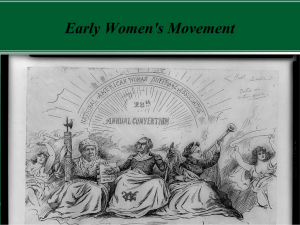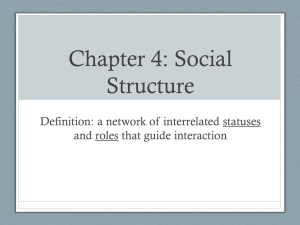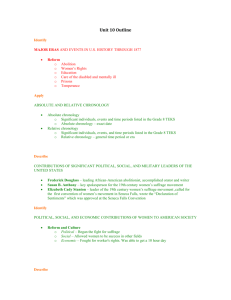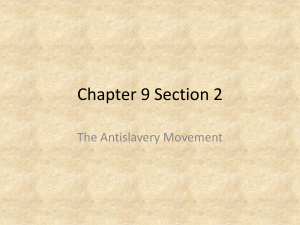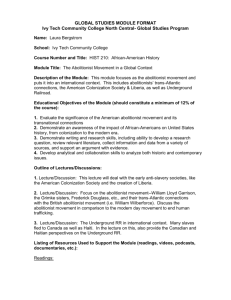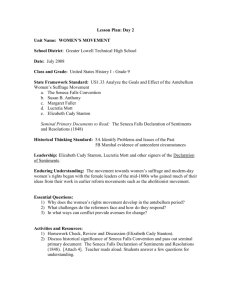Women`s Rights Movement - Madison County Schools
advertisement
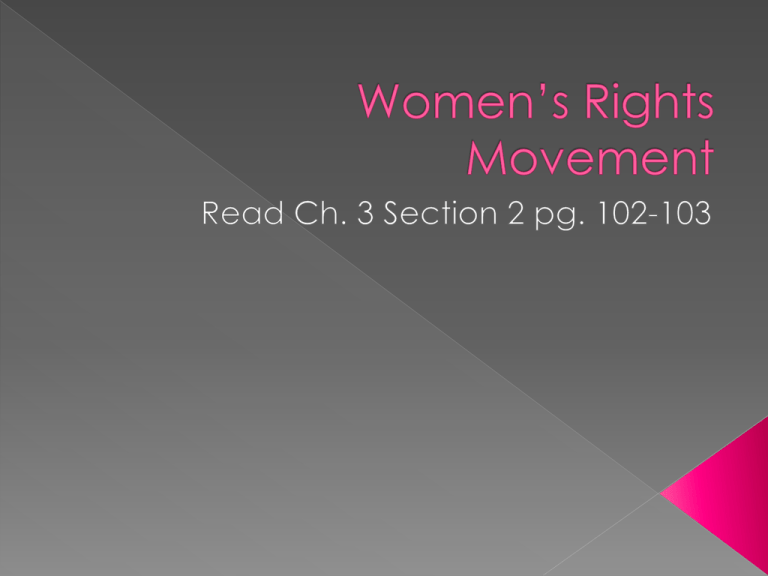
Women could not vote! If women were married: › they had no right to own property › Retain their own earnings. The 2nd Great Awakening opened many doors for women. The movement de-emphasized obedience to a minister and celebrated good works. Women was able to participate more fully in religious affairs. Women formed groups such as missionary societies and bible study groups. These church societies led to reform societies. Reform Societies grew in number between 1830’s1840’s. Thousands of women joined reform movements such as Education Urban Reforms Abolition Temperance Movements Many women were very active in the abolitionist movement. During the abolitionist movement, the issue of women’s right became an issue. At the World’s Anti-Slavery Convention (London 1840)- Lucretia Mott and other women were not allowed to be seated but expected to be seated in a screened-off section. July 1848 Seneca Falls, New York 1st women’s rights convention in America Main Goal: Obtain political power to advance the reforms that mattered to them. Organized: › Lucretia Mott- Philadelphia Quaker, leading abolitionist › Elizabeth Cady Stantonabolitionist Written by: Elizabeth Cady Stanton Modeled after Declaration of Independence Declaration of Sentiments stated their belief that “all men and women are created equal.” Breakdown of Participants: › 100 participants 68 Women 32 Men The ideas and those who supported the Declaration of Sentiments were ridiculed. Men were ridiculed for the support of women.
